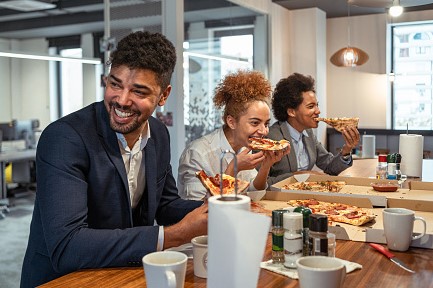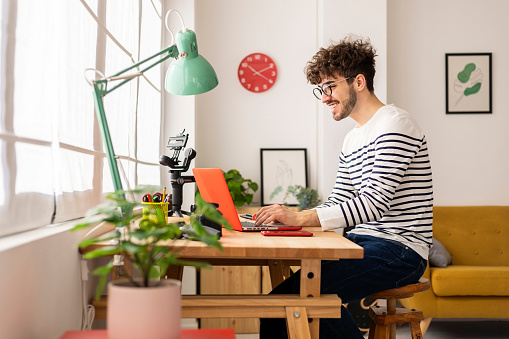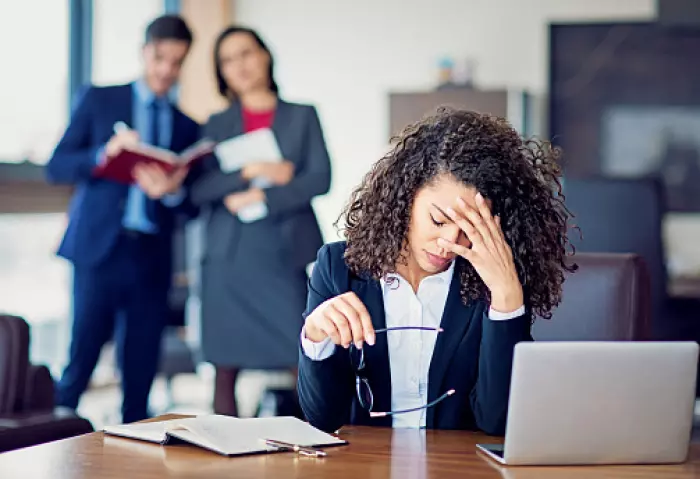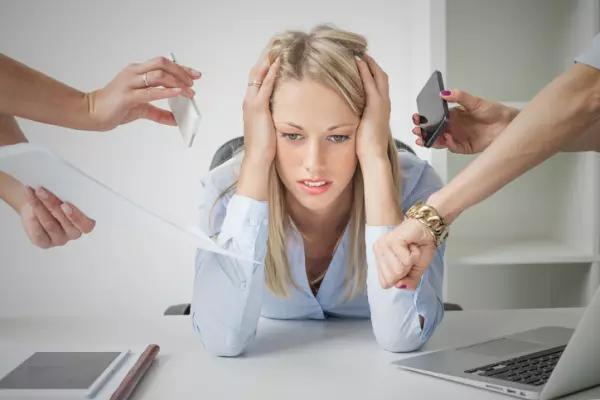Many of us have become used to working from home, but there’s a good chance by now you’ll be spending at least some of your time once again in an office environment.
There’s a lot that’s good about working in the office – watercooler conversations, fewer Zoom meetings, more collaboration – but there could also be ways office life is negatively affecting your health. Keep an eye out for these wellbeing-zappers.
 Back-to-back meetings and workload overload
Back-to-back meetings and workload overload
Whether they’re online or in a meeting room, hours of stacked-up meetings are not conducive to wellbeing.
Sitting has been deemed "the new smoking". Evidence from a growing number of studies shows spending long days sitting is associated with a similar risk of premature death to obesity and smoking.
Sitting for more than seven hours a day is also linked with a whole cluster of health conditions, including type 2 diabetes, heart disease and even dementia.
On the mental health front, there’s evidence long-term sitters are also far more likely to experience anxiety and depression.
Feeling chained to our desks by a huge workload can be just as bad as too many meetings. And both situations mean we’re less likely to have time to step out and eat something healthy: cue a snack-box or vending-machine rummage or an after-work blowout.
What to do:
Schedule your meetings for just past the hour (11.10am rather than 11am, for example) so you have time to get up, walk around and refresh.
Block out a proper lunch break in your diary. Try standing or walking meetings, and investigate an adjustable desk for at least part of the day.

Shared lunches, lunches out and food deliveries
A work lunch – whether it’s a restaurant catchup or a birthday shout in the lunchroom (above) – is fun, but chances are it’s not likely to be the healthiest meal. That goes double for food we might order in at lunchtime.
A recent University of Auckland study on Uber Eats found that almost three-quarters of food outlets on the platform were classified as unhealthy.
Most menu items (88%) evaluated were classed as "discretionary" foods – translation: foods that don’t do our health any favours.
What to do: Identify the healthy outlets near you for both eating out and ordering in, and suggest those for group outings.
Consider group lunches where people bring food to share, or try a lunch session where everyone assembles their own salad, bowl or wrap from a selection of healthy ingredients.

No flexibility with location
Our bosses can affect our health, too. The pandemic has taught us that being forced to work only at home or only in the office is bad news for psychological wellbeing.
According to recent research at Auckland University of Technology (AUT), "hybrid" workers – who spend time both in the office and at home – are not only the happiest employees, they are also the most innovative and creative.
The lead author of the Wellbeing@Work study, Professor Jarrod Haar, says this is probably because we like to have some agency over our working environment, and we also like some human social contact.
What to do: Most managers should know hybrid working is here to stay – and that they’ll lose people if they don’t offer flexible working. If yours doesn’t, suggest a trial in your workplace. Try spending at least a couple of days in the office each week for a good balance.

After-work drinks
Now we’re heading back to bars, a return to an office drinking culture could follow. It’s common for groups in some workplaces to use alcohol as a bonding tool; it’s become a way of feeling closer to our colleagues and building relationships.
But it comes at a cost: it's estimated around 20% of full-time workers are "problem" drinkers, and that has a measurable impact on workplace safety and productivity.
Alcohol-related lost productivity costs businesses around $500m a year. The booze also impacts our personal wellbeing: evidence shows it’s detrimental to mental health, sleep, weight and stress, and it also increases our risk of accidents and a clutch of cancers.
Moderate or non-drinkers – though they might attract wowser status – are likely to do better in the long run.
What to do: It can be hard dealing with peer pressure in some workplaces to drink; this can mean you need to educate colleagues that no booze doesn’t equal no fun.
Choose venues for socialising that have alcohol-free options (or ask for these for in-office drinks) and suggest social activities that aren’t centred on standing around drinking.

Toxic work relationships
Research shows that working with nice people has a huge positive impact on our mental wellbeing – and vice versa. There’s evidence that even one bad relationship with a colleague can ramp up stress and negatively affect our mental health.
So, too, can what’s termed "ambivalent" relationships, where a colleague runs hot and cold, or is unpredictable to deal with.
Spookily, workplace psychologists also warn that we're likely to work with at least one genuine psychopath in our careers; they make up 1% of the population but are overrepresented at high levels in business.
What to do: There’s not much we can do about a psychopath CEO. But if other workplace relationships are troubling you, it’s worth doing what you can to address the situation, whether it’s approaching the person directly – where a little bit of empathy can go a long way – or discussing the situation with a manager or your HR team. And if all else fails, adjusting your in-office days to avoid the person is (now) a valid option.
Images: Getty












